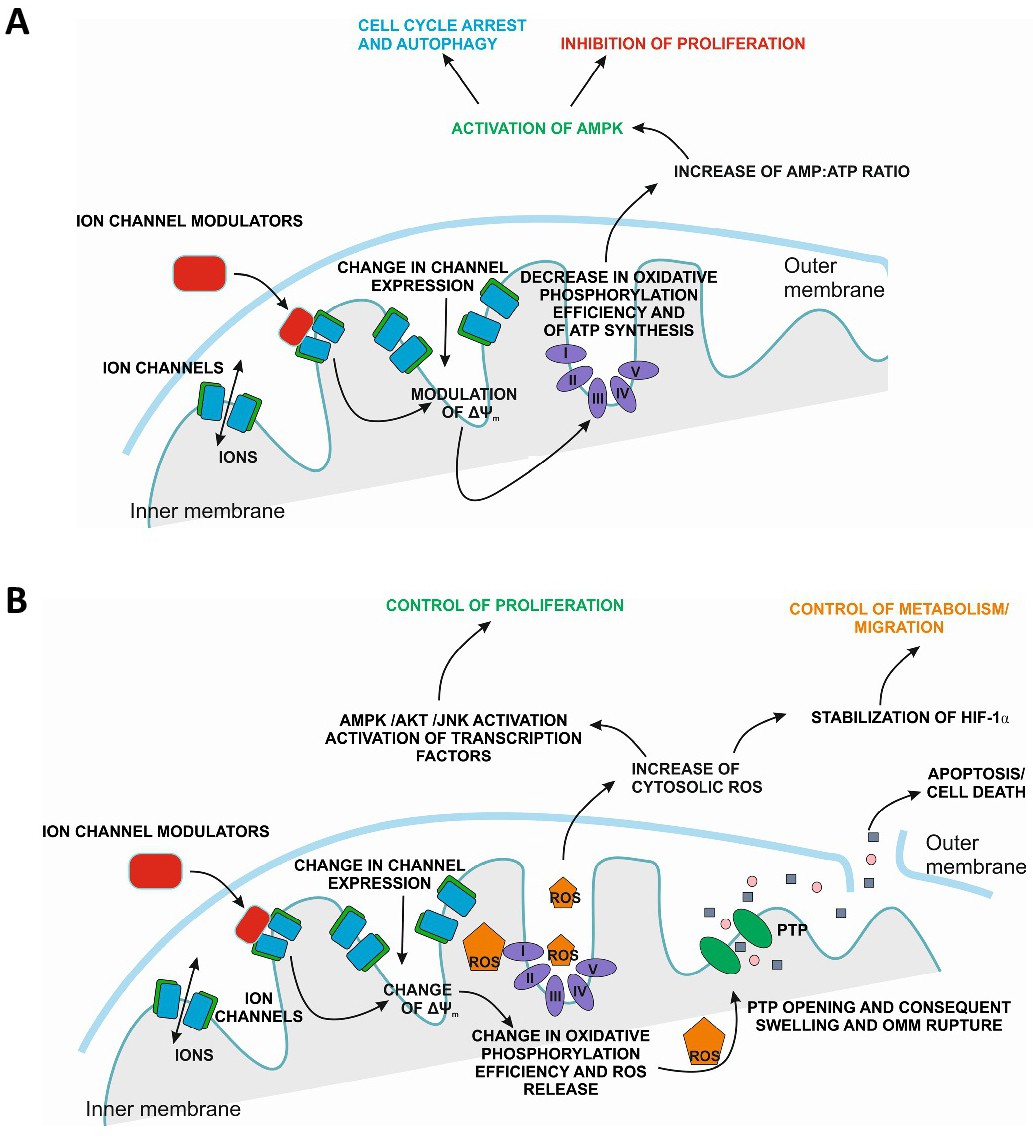Fig. 2. Possible mechanisms linking ion channel function to signalling events affecting cancer progression. A) A change in ion channel function or in channel expression might affect the efficiency of respiration by modulating the mitochondrial membrane potential. If efficiency decreases, less ATP is produced and as a consequence, the AMP: ATP ratio increases leading to AMPK activation. In turn, phosphorylation of downstream targets may modulate different signalling pathways inducing cell cycle arrest and inhibition of proliferation. B) Ion channel function, by a similar mechanism as shown in A) might affect ROS release prevalently at respiratory chain complexes I and III (but ROS production occurs also at the level of complex II to a lesser extent). Sustained ROS release in the matrix might trigger opening of the permeability transition (MPTP) leading to depolarization, swelling, rupture of the outer mitochondrial membrane and release of pro-apoptotic factors from mitochondria. ROS, when produced at sub-lethal concentration and released to the cytosol, might activate various kinases, transcription factors, and stabilize HIF1-α (although non-canonical, ROS-independent mechanism also contribute). Thereby, ROS controls proliferation, migration, metabolic shift and possibly angiogenesis. See text for further details.
